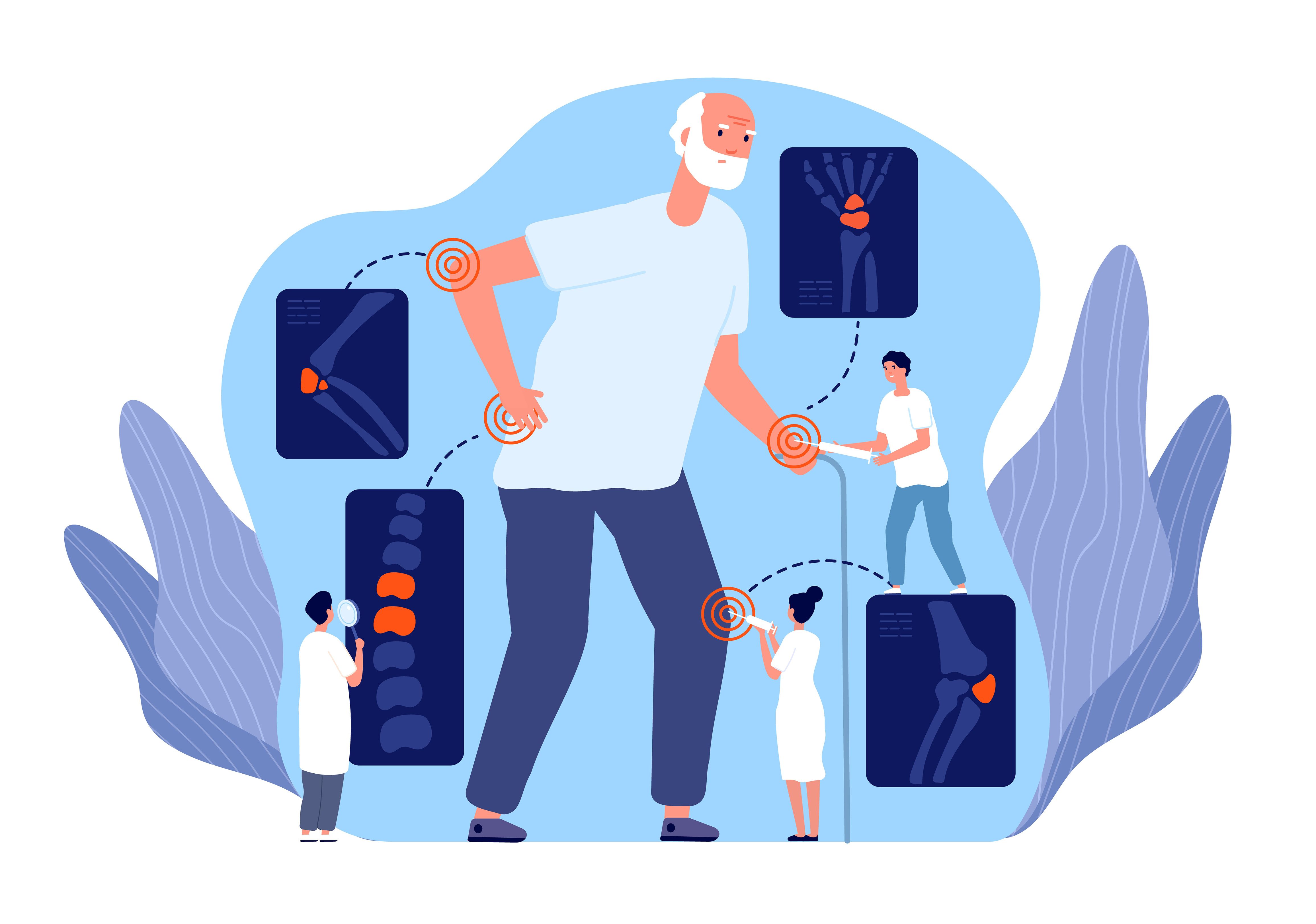- Bone Health
- Immunology
- Hematology
- Respiratory
- Dermatology
- Diabetes
- Gastroenterology
- Neurology
- Oncology
- Ophthalmology
- Rare Disease
- Rheumatology
Biosimilar DMARDs Offer Cost-Effective Option for Patients With RA After Failed Methotrexate Treatment
Economic evaluations of biosimilar disease-modifying antirheumatic drugs (DMARDs) suggest cost-effectiveness for patients with rheumatoid arthritis (RA) who did not respond well to methotrexate, potentially improving patient outcomes and health care affordability.
The cost-effectiveness demonstrated in the study can help health care stakeholders, rheumatologists, and patients better understand the benefits and financial feasibility of biosimilar DMARDs. | Image Credit: MicroOne - stock.adobe.com

For patients with rheumatoid arthritis (RA) who did not respond well to methotrexate, a study in JAMA Network Open found that biosimilar drugs were both more beneficial and more cost-effective than leflunomide.1
Current clinical guidelines for treating patients with RA typically recommend methotrexate monotherapy. However, over 50% of the patient population experiences failed treatment with methotrexate based on an inadequate response. If failed treatment occurs, it is recommended to use multiple conventional synthetic disease-modifying antirheumatic drugs (DMARDs), like leflunomide, combined with methotrexate. The next line of therapy combines biological DMARDs with methotrexate.
Expensive drug costs are the main reason biological DMARDs are not used as often in practice. A cross-sectional survey in Hong Kong found the high cost of biologics remains a major barrier to the first attempt of these drugs and long-term adherence to them.2 Even in countries when insurance covered up to 90% of biological DMARD costs, drug adherence was still not improved because of personal expenses and an increase in prescriptions.
More recent, Hong Kong has experienced price reductions ranging from 54% to 87% for CT-P13 (biosimilar infliximab) and ABP-501 (biosimilar adalimumab) compared with their reference products.1 The price reductions may help patients more easily access biological DMARDs after methotrexate failure.
The economic evaluation was initiated by the University of Hong Kong/Hospital Authority Hong Kong West Cluster. Data were recorded using the Consolidated Health Economic Evaluation Reporting Standards (CHEERS) reporting guideline. Disease activity was measured in quality-adjusted life-years (QALYs).
There were 25,099 patients with RA who participated in the study at an average age of 56 years old. More than half of the patient population identified as women (72.7%). Treatment with biosimilar DMARDs was cheaper and led to better outcomes (higher QALYs) than treatment with leflunomide.
The breakdown of the costs and QALYs were:
* Leflunomide: lifetime health care cost of $154,632 and 14.82 QALYs
* Biosimilar infliximab: $152,326 and 15.35 QALYs
* Biosimilar adalimumab: $145,419 and 15.55 QALYs
While biosimilar infliximab was slightly cheaper than leflunomide, biosimilar adalimumab was both cheaper and led to slightly better outcomes.
In the deterministic sensitivity analysis, the incremental cost-effectiveness ratio (ICER) (US$/QALY) was −$9088 to $10,238 when comparing biosimilar infliximab with leflunomide. Biosimilar adalimumab compared with leflunomide resulted in a range from −$15,797 to −$8615.
The probabilistic sensitivity analysis showed the probability of treatment sequences initiated with leflunomide, biosimilar infliximab, and biosmilar adalimumab being cost-effective out of 10,000 iterations was 0%, 9%, and 91%, respectively.
From a global perspective, 41 countries were identified with recorded sales of biosimilar infliximab in July 2022 from the IQVIA-MIDAS database. Research found 15 of the 28 high-income countries, similar to Hong Kong’s economic development, had lower unit prices of biosimilar infliximab.
In Australia, a study found etanercept experienced a 40% decrease in price for both the originator and biosimilar once the market listed the biosimilar.3 Prior to launch, etanercept was priced at US$1068 for a 50 mg/L 4 x 1 mL pen device but afterwards the drug was priced about US$641. Ultimately, Australia saw an average of $6 million in cost savings because of the biosimilar launch.
Study limitations included the treatment efficacies that were largely retrieved from independent randomized controlled trials with heterogeneity in patients’ demographic and clinical profiles.1 Additionally, participants were naive to biological DMARDs or had only experienced 1 biological DMARD prior to enrollment. Treatment efficacy may have been overestimated after applying Health Assessment Questionnaire Disability Index improvements to the cohort.
The cost-effectiveness demonstrated in the study can help health care stakeholders, rheumatologists, and patients better understand the benefits and financial feasibility of biosimilar DMARDs.
References
1. Peng K, Chan SCW, Wang Y, et al. Cost-effectiveness of biosimilars vs leflunomide in patients with rheumatoid arthritis. JAMA Netw Open. 2024;7(6):e2418800. doi:10.1001/jamanetworkopen.2024.18800
2. Li Y, Lau LKW, Peng K, et al. Factors influencing choice of b/ts DMARDs in managing inflammatory arthritis from a patient perspective: a systematic review of global evidence and a patient-based survey from Hong Kong. BMJ Open. 2023;13(10):e069681. doi:10.1136/bmjopen-2022-069681
3. Santoro C. Biosimilar etanercept similar to Enbrel in persistence of treatment, cost savings for patients with RA. The Center for Biosimilars®. February 6, 2024. Accessed July 10, 2024. https://www.centerforbiosimilars.com/view/biosimilar-etanercept-similar-to-enbrel-in-persistence-of-treatment-cost-savings-for-patients-with-ra
Newsletter
Where clinical, regulatory, and economic perspectives converge—sign up for Center for Biosimilars® emails to get expert insights on emerging treatment paradigms, biosimilar policy, and real-world outcomes that shape patient care.
